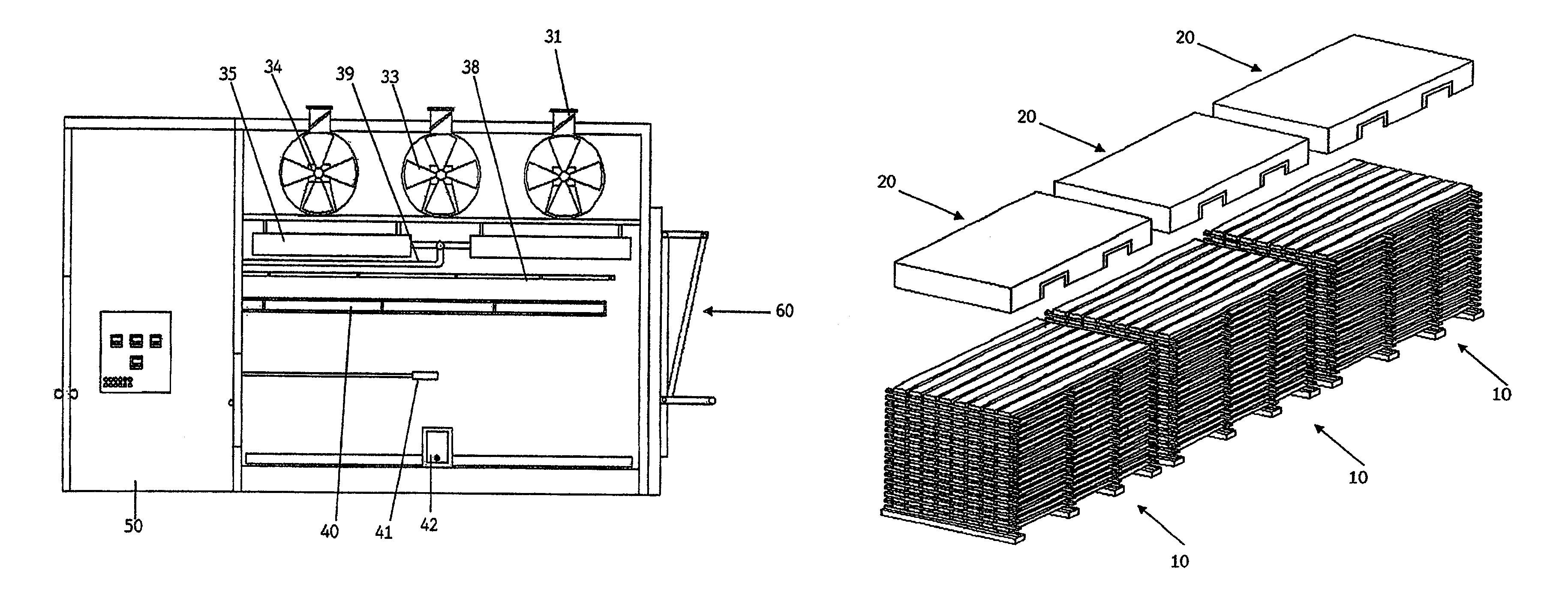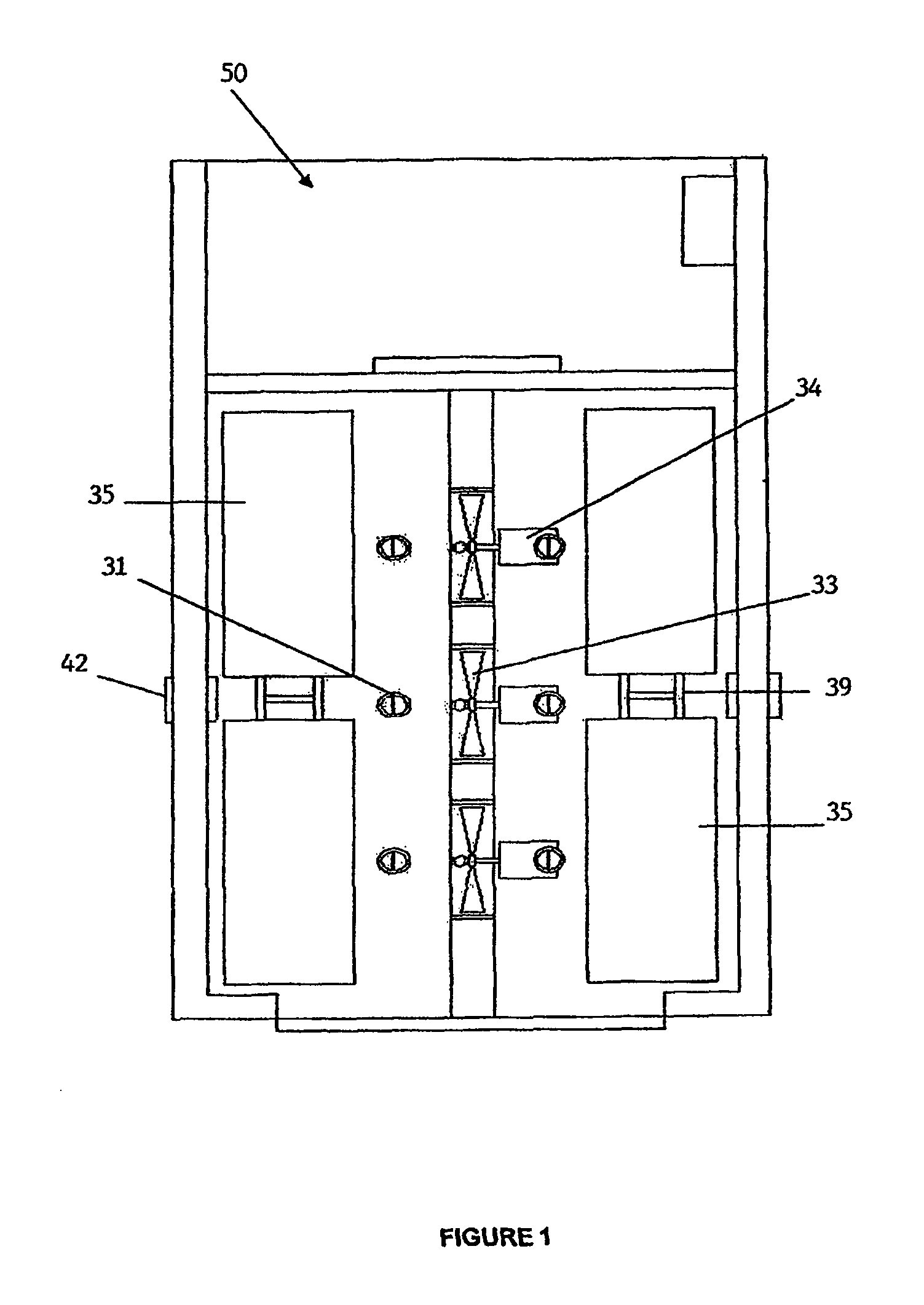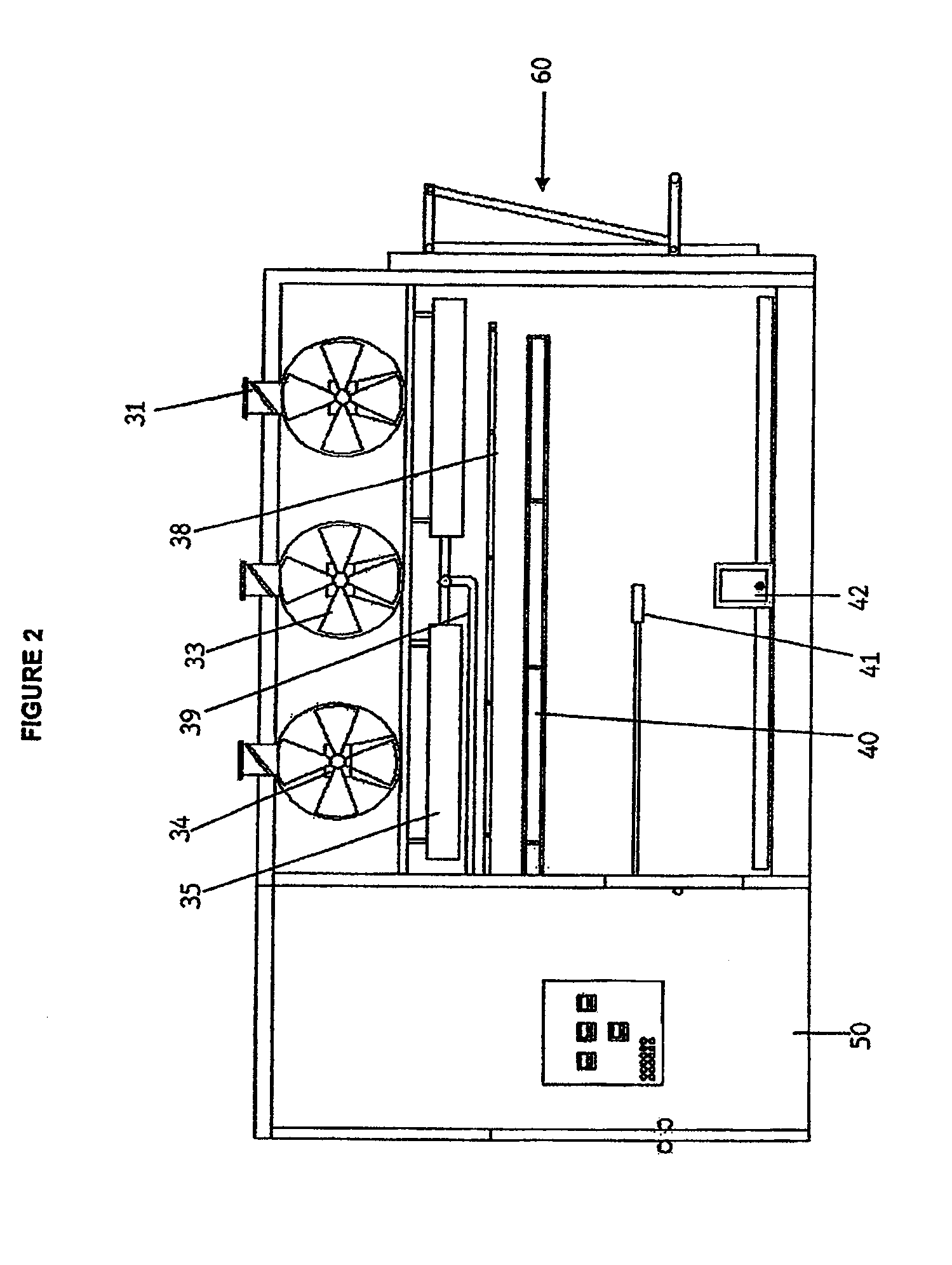High temperature lumber treatment system
a lumber treatment and high temperature technology, applied in the direction of burning process, lighting and heating apparatus, burning device, etc., can solve the problems of long process time, inefficient use of energy, and restrict the export of malaysian rubberwood furniture, so as to reduce the inherent build-up of internal stress within the lumber, shorten the residence time of the kiln chamber, and reduce the effect of internal stress
- Summary
- Abstract
- Description
- Claims
- Application Information
AI Technical Summary
Benefits of technology
Problems solved by technology
Method used
Image
Examples
Embodiment Construction
[0051]Referring to the drawings, a high-temperature method for the treatment of lumber is provided and also a kiln for use in the treatment is provided as follows.
[0052]High-temperature Lumber Treatment Method
[0053]A high-temperature treatment method for the treatment of lumber according to the present invention heats and dries lumber using staged air-steam mixtures at dry-bulb temperatures (DBT) of not less than 120° C. Existing conventional kiln systems involve drying of tropical hardwood lumber (e.g. rubberwood) at temperatures not exceeding 75° C.
[0054]The treatment method of the invention generally involves four main stages, namely, pre-treatment preparation phase, plasticization phase (first conditioning phase), drying phase and final conditioning phase.
[0055]Pre-treatment Preparation Phase
[0056]The use of air-dried lumber is preferably avoided in the treatment method of this invention. Use of freshly sawn lumber is preferred.
[0057]The kiln load or lumber stacks 10 are constru...
PUM
 Login to View More
Login to View More Abstract
Description
Claims
Application Information
 Login to View More
Login to View More - R&D
- Intellectual Property
- Life Sciences
- Materials
- Tech Scout
- Unparalleled Data Quality
- Higher Quality Content
- 60% Fewer Hallucinations
Browse by: Latest US Patents, China's latest patents, Technical Efficacy Thesaurus, Application Domain, Technology Topic, Popular Technical Reports.
© 2025 PatSnap. All rights reserved.Legal|Privacy policy|Modern Slavery Act Transparency Statement|Sitemap|About US| Contact US: help@patsnap.com



